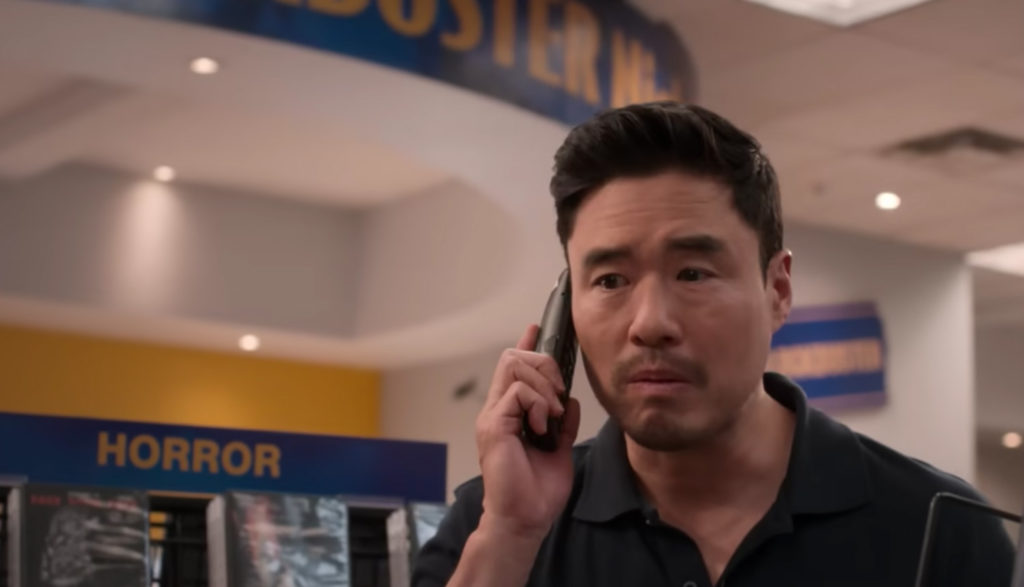
Dead Boy Detectives
Dead Boy Detectives targets teens in style and story. But it comes with very adult, problematic content.

And then there was one.
One Blockbuster, that is. You remember Blockbuster, right? It’s the video rental store that grew to over 9,000 locations at its 2004 peak before filing for bankruptcy less than a decade later? Well, not all of its franchisees are gone: there’s one left in Michigan. And it’s run by Timmy.
On the bright side, no more corporate overseers means that Timmy can run his store as he sees fit. But no more corporate overseers also means no more funding for the building rental, no monetary cushion to fall back on and more. With everyone switching to streaming services, it’ll be much harder to keep the store open. So as far as the world is concerned, Timmy is Blockbuster, and the continuation of the franchise’s legacy rests on his shoulders.
But Blockbuster—at least Timmy’s version of Blockbuster—brings something those large greedy corporations such as Netflix simply can’t: human connections. Each time you come into Timmy’s store, you support small business and are greeted with a friendly smile and wave (and yes, being the only remaining franchise of what some might call a now-defunct large greedy corporation technically counts as being a small business).
And though his store may be making its last stand, Timmy isn’t alone: he’s got his faithful team with him, whether it be his right-hand Harvard dropout Eliza or the callously cruel 16-year-old Kayla.
As it turns out, there is one remaining Blockbuster in the world: the real world. It’s in Bend, Oregon, and it has managed to survive the test of time as all other franchise locations around the world snuffed out their spotlights. But Blockbuster isn’t about the Oregon store—rather, it’s about a fictional last Blockbuster in Michigan.
The series is the creation of Vanessa Ramos, who was also a writer for Fox and NBC’s Brooklyn Nine-Nine as well as an executive story editor for Superstore (also on NBC). Similar to its predecessors, Blockbuster portrays the workers as friends verging on family, always looking to help one another out (or, failing that, at least get a couple well-meaning laughs at the expense of one another).
And like an old-timey video rental store, there’s quite a few good things we can rent out for family movie night. We hear about the lasting negative impact divorce can have on a family’s children. Timmy runs his store on the basis of helping people connect and interact with each other. And, like the plethora of workplace comedies that precede it, Blockbuster’s characters often end episodes having gained a greater understanding of and friendship with one another.
But there’s also a few sections in video stores that parents will steer their children away from. Language can be harsh, and we’ll hear the not-infrequent references to sex and drug use. LGBT content is present, too, and a prominent character is bisexual.
So what’s to be said about this comedy series? Well, much of the same as other workplace comedies. Like the employees we follow in Superstore, The Office and Parks & Recreation, we’ll watch as the well-meaning antics of Blockbuster employees result in chaos and, usually by the end of an episode, a somewhat heartfelt resolution. Other times, Blockbuster might just feel like a rental you regret taking out of the store.
When Timmy is informed that their store is the last Blockbuster in the world, he and Eliza decide to throw a block party in hopes of boosting the store’s membership count.
Timmy makes a reference to a real-life “sex cult.” Eliza reveals that her husband had an affair, and we hear a reference to sex. We see a pride flag. An employee calls gender a spectrum. Someone tells Timmy to “not deuce where you chow, and don’t smash anybody you work with.” A girl wears a shirt that reveals her midriff.
A firework causes an inflatable marketing device to catch fire and deflate. Various characters drink beer or other alcoholic beverages, and a bartender serves alcohol to minors. A woman consults “stoners” on what snacks they should sell. We hear a reference to drug use.
A woman references prayer. Eliza mentions “the god I thought I knew.” We see the negative effects divorce can have on the children of the divorcing parents.
“A–” is used four times, and “h—” is used twice. “Screwed” and “p-ss” are both used once. God’s name is used in vain three times, and Jesus’ name is inappropriately used once. A man says, “suck it.” Someone insinuates that his daughter often insults him, using a derogatory term.


Kennedy Unthank studied journalism at the University of Missouri. He knew he wanted to write for a living when he won a contest for “best fantasy story” while in the 4th grade. What he didn’t know at the time, however, was that he was the only person to submit a story. Regardless, the seed was planted. Kennedy collects and plays board games in his free time, and he loves to talk about biblical apologetics. He thinks the ending of Lost “wasn’t that bad.”

Dead Boy Detectives targets teens in style and story. But it comes with very adult, problematic content.

An elf mage contemplates on connection and regret as she watches her human friends grow old and pass away.